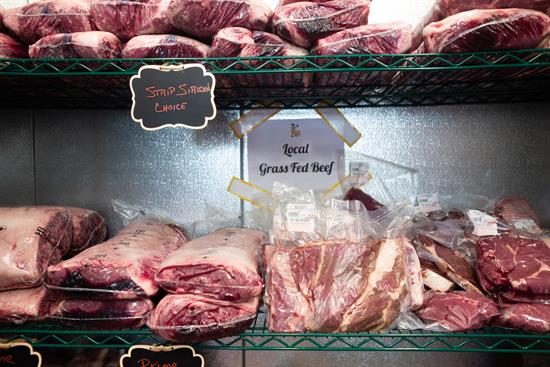Press Releases
Congresswoman Pingree Leads Bipartisan, Bicameral Effort to Expand and Strengthen Local Meat Processing
Washington,
April 29, 2025
Tags:
Food and Agriculture
Today, U.S. Representatives Chellie Pingree (D-Maine) and Jim Baird (R-Ind.), along with U.S. Senators John Thune (R-S.D.) and Tina Smith (D-Minn.), reintroduced legislation to support small meat and poultry processors throughout the U.S. The bipartisan, bicameral Strengthening Local Processing Act would make it easier for local livestock and poultry producers to process meat locally, by expanding access to federal resources and providing critical support for training and technical assistance to small processors. “Access to USDA processing facilities remains a significant challenge for livestock producers in Maine and across the country. Their livelihoods depend on having somewhere to take their animals, but under the current system, their options are severely limited. Chefs, retailers, and consumers want to buy locally raised meat, and they’re frustrated by how difficult it is to get,” said Congresswoman Pingree, a longtime farmer and member of the House Agriculture Committee. “Our bipartisan Strengthening Local Processing Act will increase processing, enhance opportunities for local producers, and help small slaughterhouses and butchers grow their businesses—delivering the quality, locally raised meat and poultry consumers expect at the store.” Under federal law, farmers and ranchers are required to send their animals to one of a limited number of U.S. Department of Agriculture (USDA) or state-inspected slaughterhouses—often hundreds of miles away—in order to sell individual cuts of locally raised meats. As a result, many smaller meat and poultry processing plants are booked out for months, and small farms are unable meet new demand due to a lack of processing capacity. The Strengthening Local Processing Act will increase the federal cost share for both state facility inspections (from 50 to 65%), as well as the Cooperative Interstate Shipment (from 60 to 80%), thus encouraging more states to operate state inspection programs and participate in CIS. There are currently 29 states that operate a state inspection program, and 10 states that participate in CIS. The legislation would create a competitive grant program for small and very small establishments, state inspected facilities, custom exempt facilities, or new small-scale slaughter facilities to help increase processing capacity and grow resiliency. It would also create two new grant programs for meat processing workforce training—one for colleges, universities, nonprofits, worker training centers, and others to establish or expand meat processing training program and one for small and very small establishments or nongovernmental organizations to offset the cost of training new meat processors. ### |

